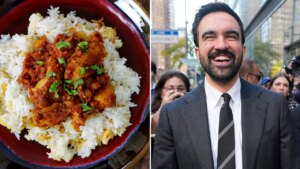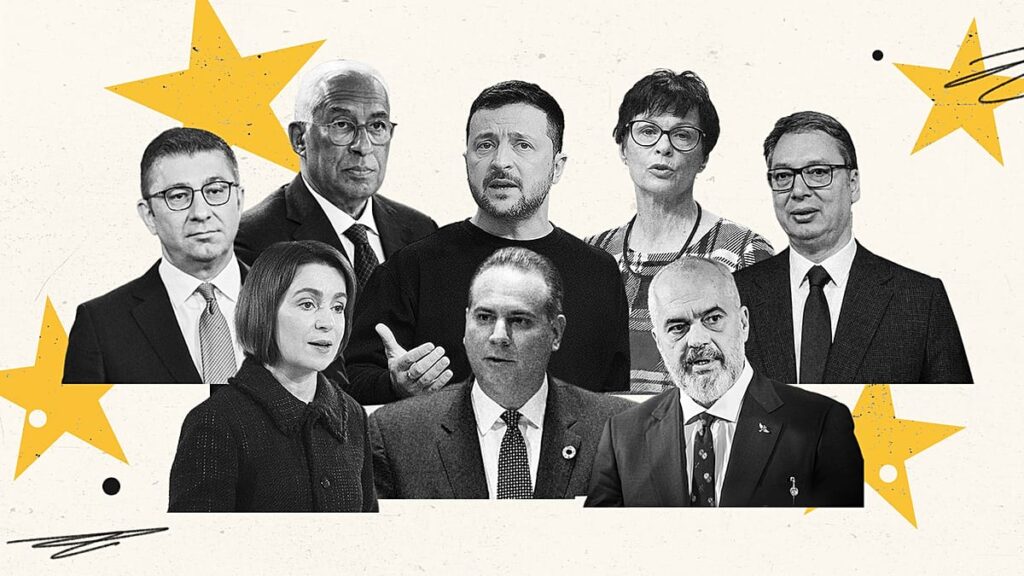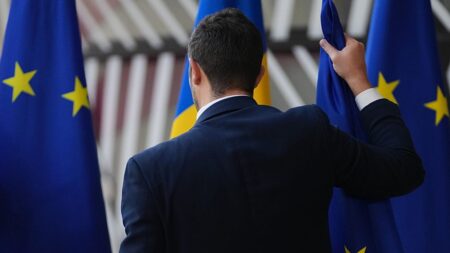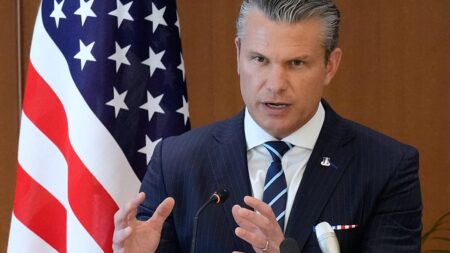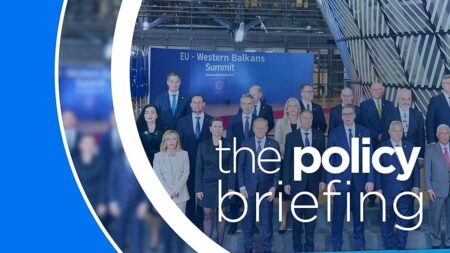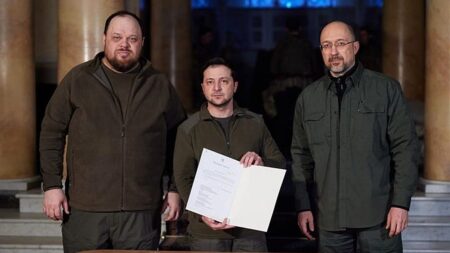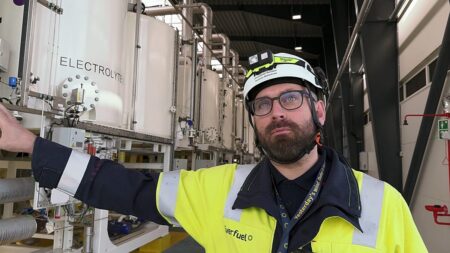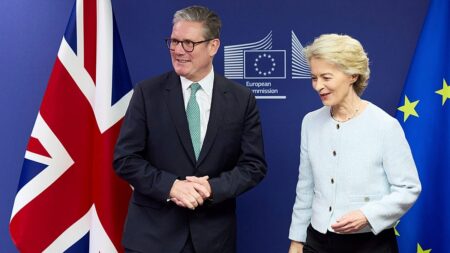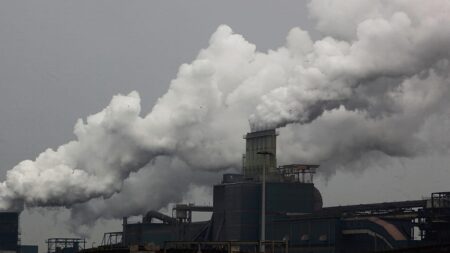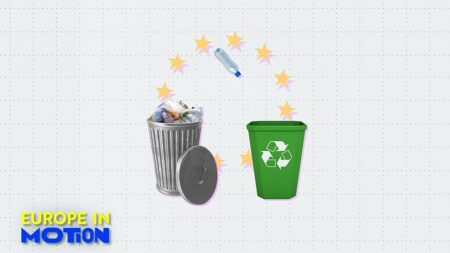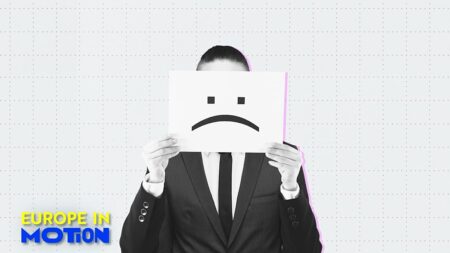28 February 2022: Just a few days after the start of Russia’s full-scale invasion, Ukraine submits a formal letter of membership to join the EU via “a new special procedure”. The decision receives widespread media attention, but member states are mixed on fast-tracked accession.
1 March 2022: President Zelenskyy virtually addresses the European Parliament and makes an impassioned case for accession. “Do prove that you are with us. Do prove that you will not let us go. Do prove that you are indeed Europeans,” Zelenskyy tells lawmakers, receiving a standing ovation. The speech brings the translator to tears.
8 April 2022: Ursula von der Leyen, the president of the European Commission, travels to Kyiv and presents Zelenskyy with the questionnaire to kickstart the accession process.
17 June 2022: The European Commission recommends that Ukraine be granted candidate status and lays out seven conditions, such as steps to tackle corruption, to start formal talks.
23 June 2022: The 27 leaders of the EU endorse Ukraine’s candidacy, a decision hailed as historic. Moldova, which applied shortly after Kyiv, is also granted candidate status. The two neighbours become informally coupled in the accession process.
22 June 2023: The European Commission tells member states that Ukraine has fully met two of the seven preconditions and made certain progress on the other five.
14 December 2023: The 27 leaders of the EU decide to open negotiations with Ukraine and Moldova.
18 June 2024: Ahead of taking over the rotating presidency of the EU Council, Hungary announces it will freeze Ukraine’s accession process. It marks the start of the Hungarian veto.
28 March 2022: A proposed minerals deal between the United States and Ukraine raises serious fears over Kyiv’s ability to meet EU rules and standards. The concerns are later mitigated.
1 July 2025: The European Commission rebukes Hungary, saying there are “no objective reasons” to block Ukraine’s accession. Budapest justifies its position using the results of a national consultation.
23 July 2025: Von der Leyen expresses “strong concerns” and demands explanations over a new law in Ukraine that weakens the independence of two anti-corruption agencies. The backlash forces Kyiv to undo the legal changes.
2 September 2025: Amid persistent speculation, ministers pour cold water on the idea of decoupling Ukraine and Moldova to allow the latter to advance in the accession process.
2 October 2025: Hungarian Prime Minister Viktor Orbán derails a plan to tweak the voting rules of the accession process that would have allowed Ukraine to open the first cluster of negotiations.
Credit: European Union, 2025
Read the full article here


